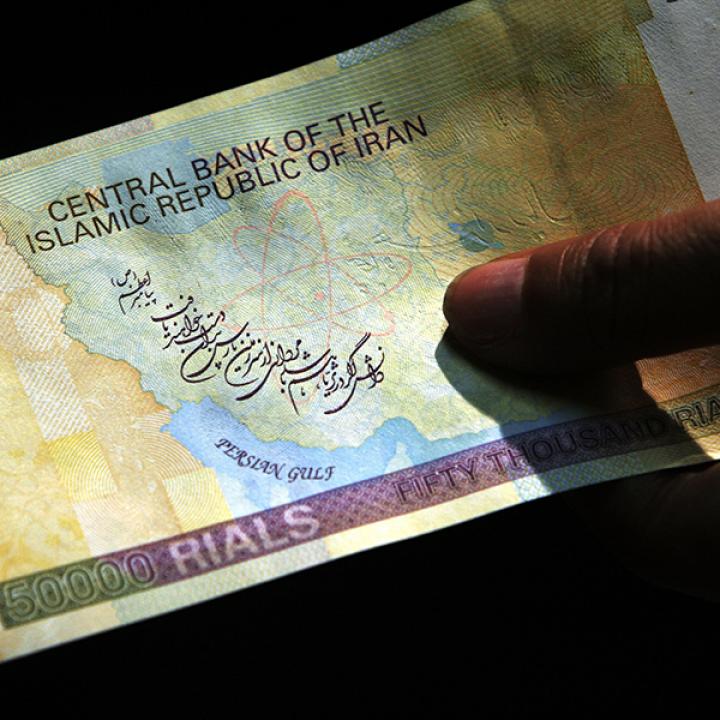

In waiving sanctions related to the nuclear program, the president would also blunt his most effective tools for countering Tehran's other illicit activities, effectively rewarding the regime for steps it has not taken.
As nuclear negotiations with Iran come down to the wire, one of the major sticking points (though certainly not the only one) is sanctions relief. During the latest round of talks in Oman, Iranian negotiators reportedly pressed for the early lifting of U.N. Security Council sanctions to be part of any nuclear accord. The Obama administration, according to other reports, is prepared to suspend U.S.-imposed "nuclear-related" sanctions early in the implementation of a deal.
Both the Iranian demand and the U.S. proposal represent efforts to surmount the same obstacle: Congress. The White House recognizes that even if it wished to offer to lift sanctions upfront as part of any deal, Congress's likely opposition would make it difficult to honor such an offer, leaving it to resort to the waiver authority granted the president by nearly all sanctions legislation. For its part, Iran probably recognizes that the uncertain political support for a deal in the U.S. means a narrow window of opportunity to get U.N. sanctions lifted, a step that could be blocked by an American veto.
Both steps would prove problematic for the United States. Once lifted, U.N. sanctions could not quickly or easily be reimposed in the event of Iranian cheating. Although Russia and China voted in favor of sanctions on six occasions from 2006 to 2010, they would probably block any reintroduction. The U.N. measures are the keystone for much of the global sanctions architecture; they provide the legal basis for countless national sanctions against Iran, which could in turn crumble should the U.N. resolutions be rescinded. Lifting of U.N. sanctions should thus come in the final, not the initial, phase of any accord.
The complication in suspending U.S. sanctions that are "nuclear-related" is the term itself, found in the text of the "Joint Plan of Action" interim accord reached last November -- but not in U.S. law. Most sanctions against Iran are related not just to its nuclear endeavors but also to its other illicit pursuits. Sanctions against Iran's central bank, for example, arise from the Treasury Department designating it a "jurisdiction of primary money laundering concern" for, among other things, participation in "terrorism finance." Conversely, some measures that are clearly related to nuclear activity, such as U.N. Security Council Resolution 1737, contain other sanctions that should be maintained regardless of any agreement, such as the ban on Iran exporting arms.
In waiving sanctions that are related to Iran's nuclear program, the president would also blunt his most effective tools for countering Iran's other illicit activities, effectively rewarding Iran for steps it had not taken. This may be in part a side effect of the way the underlying legislation was drafted, but it would be easier to swallow if the accompanying deal were a strong one and if, in the wake of a deal, the White House and Congress jointly devised a modus operandi for countering Iran's support for terrorism and other illicit activities -- or, better yet, if Iran agreed to abandon those activities as part of the deal.
Rather than working around Congress, the Obama administration should try to craft an agreement -- and a broader policy toward Iran and the Middle East -- that draws support across the U.S. political spectrum.
Michael Singh is the Lane-Swig Senior Fellow and managing director at The Washington Institute. This article originally appeared on the Wall Street Journal's "Think Tank" blog.
Wall Street Journal



